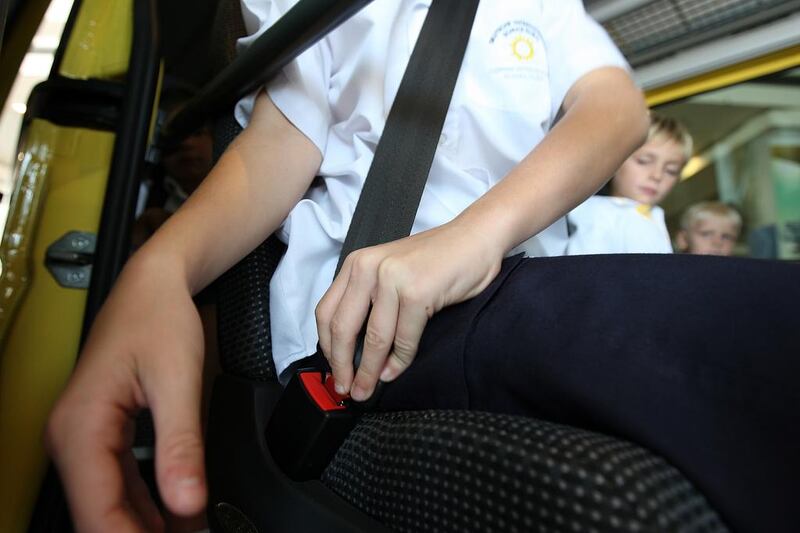This morning, I saw a small boy. He couldn’t have been more than six years old, walking around the back seat of his family’s SUV as it hurtled along the road. A few months ago, I saw a man driving with a little girl on his lap. Many of us find this behaviour appalling. Unfortunately, there are a lot of traffic accidents and road fatalities in the UAE. Many of them could be prevented or minimised if more people wore seat belts.
Studies show that seat belts save lives and reduce injuries. It is also an easy thing to do. We can put on a seat belt in seconds. If only it were that simple. These reasons do not take into account individual attitudes and sociocultural factors. We cannot increase seat belt use without understanding the psychology of road safety behaviour.
Many experts believe that people don’t wear seat belts because they don’t understand how important they are. Social psychological theories also provide other explanations.
Few people in their 20s believe that they will be a widow or have a terminal illness in their 30s. Unfortunately, these things can and do happen – we just don’t think that they are going to happen to us. The same principle applies to road safety behaviour. We are aware that people get injured and die in car accidents, but we can’t really picture ourselves as a victim. Young people feel particularly infallible since death is associated with old age and not youth.
Two additional and related factors are overconfidence and internal locus of control. Many of us overestimate our driving abilities and underestimate the influence of other people’s driving skills on our personal road safety. Many people don’t wear seat belts because they trust themselves on the road. Unfortunately, we do not drive in a vacuum – we are affected by other drivers and road conditions. You can be the best driver on the road and still have an accident.
A fourth factor is the just world belief. One of the cognitive fallacies that we believe in is that bad things don’t happen to good people. Therefore, if we are a good person (and most of us believe that we are), then we are less likely to be involved in a car accident. Unfortunately, this is not true.
The final factor is conformity. Wearing seat belts is not as common in the UAE as it is in some other countries. Many people do not wear seat belts because they do not want to stand out when they are around their friends.
We need to change people’s attitudes and beliefs towards seat belts as a precursor to changing their behaviour. We can do this in a number of ways. Road safety campaigns should be grounded in the psychological sciences of persuasion and learning. They should be tailored for different audiences. Facts will work with people who are logical. Other people lack the motivation to analyse and evaluate an argument. For these people, eye-catching ads might be more effective.
Second, we need to highlight road fatalities that involve young people to challenge unrealistic optimism. It is important to honour the people who were seriously injured or passed away in car accidents by sharing their stories. Doing so will challenge ideas about road safety. We can also report on traffic accidents that involved one “good” driver and a “bad” one to combat overconfidence.
Third, we need harsher fines for people who do not adhere to the laws. Perhaps random checks can be used. Punishments can be used to deter negative behaviour, but it is often better to reward positive behaviour. Therefore, it might be a good idea to implement a campaign that is similar to the white points that drivers accrue for good driving behaviour. These points can then be redeemed against a variety of incentives, including prizes that relate to road safety.
Finally, we need to change the culture of seat belts and road safety behaviour. This will take a lot of time and a lot of work, but we can start by tapping into social media by encouraging influencers to set a trend of good behaviour.
Dr Sarah Rasmi is a psychologist and professor at United Arab Emirates University
On Twitter: @DrSarahRasmi





